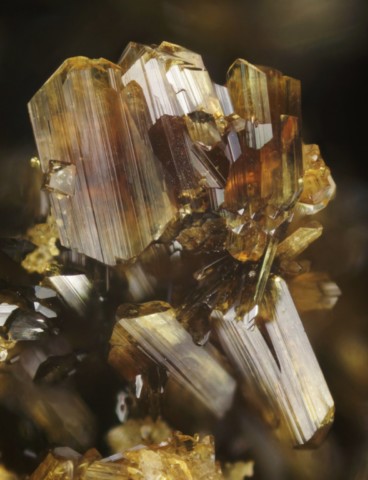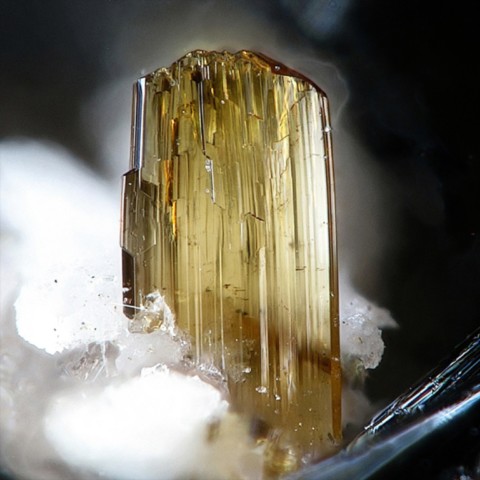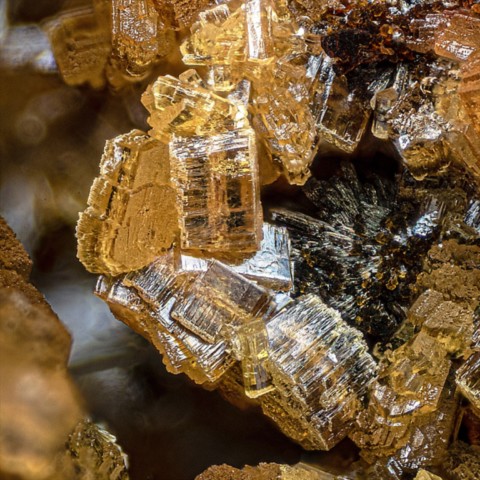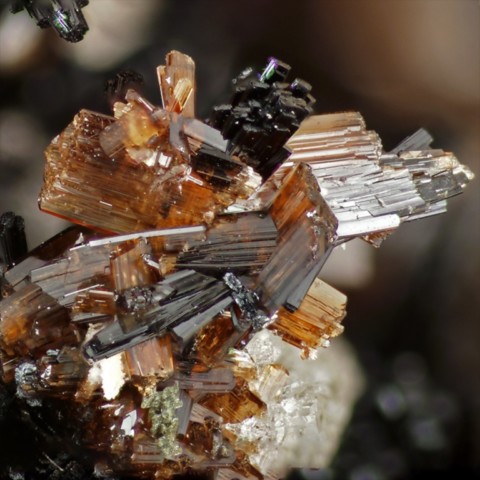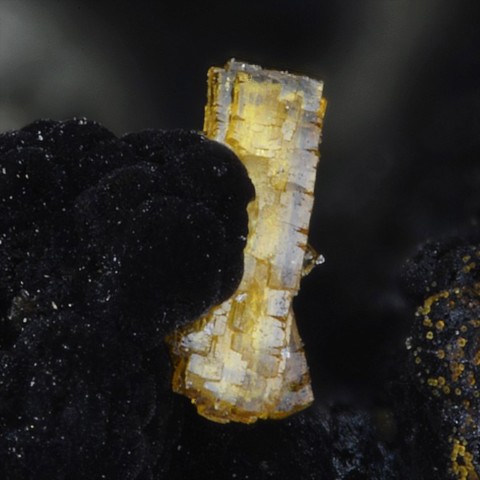JAHNSITE
Class : Phosphates, arsenates, vanadates
Subclass : Hydrated phosphates
Crystal system : Monoclinic
Chemistry : CaMn(Mg,Fe)2Fe2(PO4)4(OH)2 8H2O
Rarity : Uncommon
Jahnsite is a group of secondary phosphates resulting from the decomposition of primary phosphates (triphylite, lithiophyllite) from granite pegmatites. This group includes four jahnsites, distinguished by suffixes according to the metals present in sites X, M1 and M2 : (CaMnMg), (CaMnFe), (CaMnMn) and (MnMnMn). It was named in honor of Richard Henry Jahns, Professor of Geology at Stanford University. Jahnsite occurs in elongated to tabular prismatic crystals, sometimes acicular, of 1 cm maximum, often gathered in subparallel aggregates. Jahnsite also forms small masses measuring up to 5 cm. Like many phosphates, jahnsite can take on many colors, with yellow to brown and red-brown hues predominating.
Main photo : Jahnsite from Tip Top Mine Jahnsite, South Dakota, USA © Stephan Wolfsried
Jahnsite in the World
Twinning
No twin known for this mineral species.
Fakes and treatments
No fakes recorded for this mineral species.
Hardness : 4
Density : 2.71
Fracture : Undetermined
Streak : White
TP : Translucent to transparent
RI : 1.640 to 1.670
Birefringence : 0.030
Optical character : Biaxial +
Pleochroism : Strong
Fluorescence : None
Solubility : -
Magnetism : NoneRadioactivity : None

